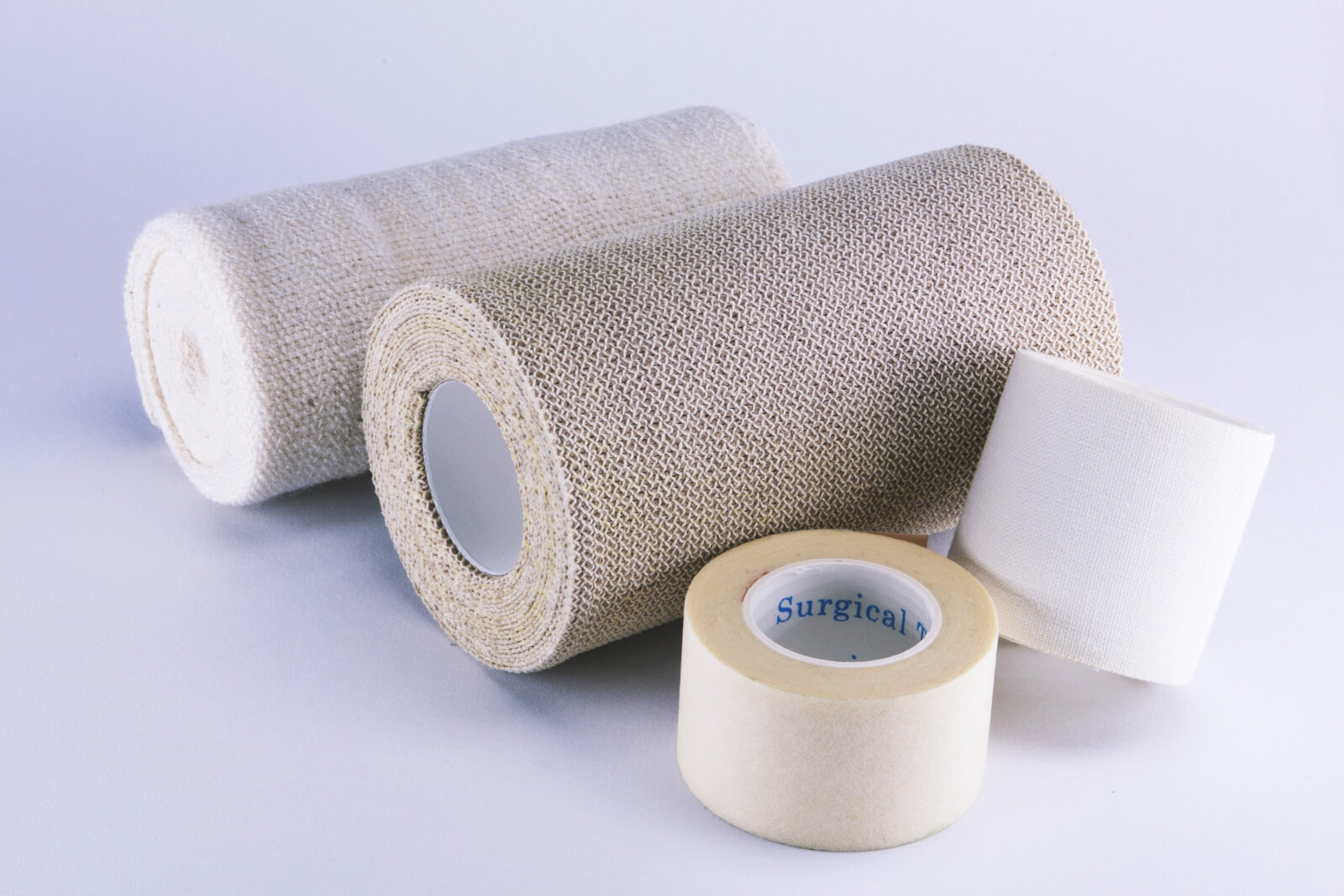Hernia Mesh Manufacturers Face Lawsuits Over Complications
Amid the backdrop of an escalating medical crisis, hernia mesh manufacturers are facing a surge of lawsuits. Allegations of releasing unreasonably dangerous products without sufficient warnings have shaken the industry. Central to this controversy is C.R. Bard's disputed use of a non-implant-grade plastic. This article explores the legal landscape, delving into the specifics of these accusations, their implications for patients, and the challenges faced in the ongoing investigations.

Overview of Lawsuits Filed
Numerous lawsuits have been filed against hernia mesh manufacturers, accusing them of releasing dangerously defective products that have caused significant post-surgical complications for patients. These lawsuits, many of which have resulted in substantial settlements, have had a transformative impact on the medical industry, holding manufacturers accountable for their defective products. The outcomes of these lawsuits have not only resulted in financial compensation for affected patients, but have also led to increased scrutiny and regulation of hernia mesh products. This heightened attention on quality and safety has instigated changes in the medical industry's practices, policies, and procedures regarding the development, testing, and marketing of such products. Despite these industry-wide changes, the human cost of these defective products remains significant.
Accusations Against Manufacturers
Several hernia mesh manufacturers, including C.R. Bard, are facing serious accusations of developing and marketing unreasonably dangerous and defective products, knowingly causing harm to patients. The allegations are supported by numerous patient testimonials, many of which describe severe complications post-surgery. The lawsuit outcomes, thus far, have pointed to a pattern of negligence on the part of the manufacturers. Court documents indicate that C.R. Bard, in particular, continued to use harmful materials in their meshes even after warnings were issued about their safety. These revelations have led to an increase in the number of lawsuits filed, as more patients come forward with stories of complications and suffering due to these defective hernia meshes.
Unheeded Product Warnings
Despite being warned about the potential hazards, hernia mesh manufacturers, notably C.R. Bard, allegedly continued to use detrimental materials in their products, leading to severe health complications in patients. These unheeded warnings have caused widespread patient safety concerns.
The following points highlight the extent of the issue:
- Despite repeated warnings, manufacturers ignored the potential dangers, prioritizing profit over patient safety.
- Evidence suggests that manufacturers were aware of the risks but chose to ignore them.
- The use of harmful materials in hernia mesh products has led to severe health complications, including organ perforations and chronic pain.
- Manufacturers' negligence in disregarding the warnings has resulted in numerous lawsuits, with patients seeking compensation for the physical and emotional distress they've endured.
Faulty Mesh Designs
Continuing the use of harmful materials, hernia mesh manufacturers are also under scrutiny for their allegedly defective mesh designs. These flawed designs are implicated in a range of complications, posing potential health risks to the patients who undergo hernia repair with these devices. Notably, these problematic designs often lead to mesh migration or shrinkage, resulting in immense pain, organ damage, and infection. Manufacturers are accused of bypassing adequate testing protocols in a rush to market, thus, failing to ensure the safety of their products. The growing number of lawsuits underscores the urgent need for regulatory oversight and patient advocacy. The litigation serves as a powerful reminder for manufacturers to prioritize patient safety over profits, and to ensure transparency and accountability in their operations.
Consequences for Patients
The repercussions for patients suffering from complications associated with defective hernia mesh implants are substantial and multifaceted. The long term effects can be devastating, often requiring additional surgeries and extensive medical treatment. Many patients experience chronic pain, a significant decrease in quality of life, and may also face financial hardship due to medical expenses and lost wages.
- Persistent pain and discomfort, severely affecting daily activities
- Requirement for additional surgeries and medical treatments
- Financial distress due to mounting medical bills and lost income
- Emotional trauma and stress due to ongoing medical complications
Patient advocacy groups are actively raising awareness about these issues, helping patients understand their rights, and supporting those who choose to seek compensation through lawsuits.
Seeking Compensation
Affected patients seeking compensation from hernia mesh manufacturers are primarily focused on recovering damages for physical and emotional pain, medical expenses, loss of income, and other related hardships. Among the key concerns is mesh failure, which can lead to serious health complications requiring further medical intervention. The cost of revision surgeries needed to address these complications is a critical factor in the compensation claims. The financial burden imposed by these surgeries, compounded by the loss of income due to inability to work, underscores the gravity of the issue. Consequently, these lawsuits aim to hold manufacturers accountable for the severe hardships endured by patients and seek fair compensation to alleviate the financial stresses associated with mesh-related complications.
C.R. Bard’s Mesh Controversy
One company embroiled in significant controversy is C.R. Bard, a hernia mesh manufacturer whose products have been implicated in a number of serious complications. The company is facing numerous lawsuits, initiating a robust legal defense. However, this has had a significant impact on patient trust.
- The company's legal defense has focused on denying allegations of negligence and asserting the safety of their products.
- Evidence suggests C.R. Bard knowingly used a potentially harmful material in their meshes.
- The controversy has drastically affected patient trust in the company and its products.
- Despite the controversy, C.R. Bard continues to manufacture and sell hernia meshes.
This situation underscores the need for transparency and rigorous product testing in the medical device industry.
Potential Harm From Materials
Serious health complications have been linked to certain materials used in the manufacturing of hernia meshes, raising questions about their safety and suitability for surgical use. These harmful materials have led to an array of long term effects that are detrimental to patients' health.
| Harmful Materials | Long Term Effects | |
|---|---|---|
| 1 | Polypropylene | Chronic Pain |
| 2 | Polyester | Organ Damage |
| 3 | Animal Tissue | Infection |
Polypropylene, for instance, is said to degrade over time, causing chronic pain. Polyester, another controversial material, has been associated with organ damage due to its potential to shrink and harden. Animal tissue meshes, despite being a more natural option, can lead to severe infections if not properly treated.
OSHA’s Warning to C.R. Bard
The Occupational Safety and Health Administration (OSHA) issued a warning to C.R. Bard regarding the use of certain materials in their hernia mesh products. This warning highlighted serious concerns about potential harm from materials used in the manufacturing process.
- OSHA's warning was clear-cut, stating that the materials used could pose significant health risks.
- The materials in question were identified as potentially harmful for permanent implantation in the human body.
- Despite the warning, allegations suggest that C.R. Bard continued using these materials in their products.
- This decision by C.R. Bard, in the face of OSHA's warning, has resulted in numerous lawsuits from patients who suffered complications.
This issue underscores the critical importance of manufacturers adhering to safety guidelines and prioritizing patient health over profits.
Negligence Allegations
Numerous allegations of negligence are now being lodged against hernia mesh manufacturers, with a significant number focused on C.R. Bard's continued use of hazardous materials in their products, despite explicit warnings from OSHA. An alleged cover-up is at the center of these allegations, with claims that the company purposefully concealed the risks associated with their products.
| Alleged Negligence | Patient Advocacy |
|---|---|
| C.R. Bard knowingly used hazardous materials | Advocacy groups demand accountability |
| Alleged cover-up of risks by manufacturers | Patients seek compensation for suffering |
| Negligence lawsuits filed against manufacturers | Advocacy promotes patient rights and safety |
Patient advocacy groups are now stepping into the fray, demanding accountability from these manufacturers and pushing for patient rights and safety. The lawsuits serve as a loud call for justice for the victims of this alleged negligence.
Possible Compensation From Lawsuits
In light of these lawsuits against hernia mesh manufacturers, potential compensation may include coverage for physical and emotional suffering, lost wages, and medical expenses incurred by the patients. The amount of compensation will largely depend on the severity of complications and the impact on quality of life.
- Compensation for physical and emotional trauma: This covers the physical pain and emotional distress experienced by the victims.
- Reimbursement for lost wages: This compensates for the potential financial losses due to inability to work.
- Payment for medical expenses: This includes costs of surgery, rehabilitation, and any future medical care required.
- Compensation for impact on quality of life: This includes inability to perform daily activities or enjoy hobbies and social activities.
Investigating Mesh Companies
Given the magnitude of potential compensation from lawsuits, attorneys are now rigorously investigating hernia mesh manufacturers such as C.R. Bard and others for their alleged role in causing severe health complications. The investigation process involves a thorough examination of company records to ascertain any evidence of negligence or malpractice. These investigations also heavily rely on patient testimonials to corroborate allegations of defects and adverse health outcomes. Patient testimonials provide a crucial link between the use of a specific hernia mesh and the subsequent medical complications experienced. The findings from these investigations could significantly impact the legal actions taken against these companies and potentially lead to substantial compensations for affected patients.
Identifying Mesh Complications
Amid the legal battles, a critical facet of these lawsuits lies in correctly identifying the complications associated with the use of hernia mesh products. Mesh complications identification is a complex process, but crucial in these cases.
- Chronic Pain: Persistent discomfort in the area of the mesh implant can be a sign of complications.
- Infections: Long term effects of mesh complications often include recurring infections.
- Mesh Migration: The device can move from its original location causing severe internal issues.
- Rejection: The body may reject the mesh, leading to inflammation, pain, and other complications.
Recognizing these complications is vital in ensuring that those affected by defective hernia mesh products can seek the justice and compensation they deserve.
Second Surgeries Needed
Complication recognition often culminates in the need for second surgeries, a distressing reality for many patients implanted with defective hernia mesh products. The complications after surgery are numerous, ranging from severe pain and infections to adhesions and fistulas. These complications often necessitate revision surgeries, involving the removal or repair of the problematic mesh. Such surgeries not only compound the physical and emotional distress experienced by the patients, but also lead to significant financial burdens due to medical expenses and lost wages. The increasing number of such cases has led to a surge in lawsuits against hernia mesh manufacturers, with patients seeking compensation for their suffering and financial losses.
Finding Legal Assistance
Frequently, patients affected by defective hernia mesh complications seek legal assistance to understand their rights and explore the possibility of filing a lawsuit against the responsible manufacturers. By doing so, they hope to receive compensation for their suffering and financial losses.
Engaging with a legal professional can provide:
- An explanation of patient rights and potential legal action
- Legal guidance tailored to the individual case
- Assistance in gathering necessary medical documentation
- Representation in court if a lawsuit is pursued
Understanding patient rights and potential legal action can empower those affected by defective hernia mesh complications. It is a crucial step towards ensuring manufacturers are held accountable and patients receive the necessary compensation for their ordeal.
Frequently Asked Questions
What Is the Process for Filing a Hernia Mesh Lawsuit?
To file a hernia mesh lawsuit, you must first secure legal representation. This involves finding an attorney who specializes in such cases. The attorney will undertake a review of your medical records to establish product liability. Consideration of the statute of limitations, which varies by state, is crucial as it dictates the timeframe within which a lawsuit must be filed. Your attorney will guide you through the process, which includes filing a complaint and potentially entering into settlement negotiations or going to trial.
How Long Does It Typically Take for a Hernia Mesh Lawsuit to Be Resolved?
Like a complex puzzle, the duration of a hernia mesh lawsuit can vary widely, shaped by numerous factors. These may include the specifics of the case, the court's schedule, and the strategies employed by both parties. The statute of limitations also plays a pivotal role, dictating the timeframe within which a lawsuit must be initiated. Therefore, while some cases may reach a resolution within a year, others may take several years to conclude.
Are There Other Hernia Mesh Manufacturers, Aside From C.R. Bard, Facing Similar Lawsuits?
Yes, other hernia mesh manufacturers are facing similar lawsuits. For instance, Ethicon, a subsidiary of Johnson & Johnson, Atrium Medical Corporation, and Covidien are among those under scrutiny. These lawsuits primarily concern issues of mesh material quality and manufacturer accountability, with allegations that these companies produced and marketed defective products, leading to severe complications and necessitating additional surgeries for patients.
What Is the Average Compensation Payout for a Hernia Mesh Lawsuit?
The average compensation payout for a hernia mesh lawsuit varies greatly based on individual case factors. These factors encompass the severity of complications, medical costs, loss of earnings, and the degree of pain and suffering endured. Payout factors are assessed alongside lawsuit eligibility, which involves proving faulty mesh was the cause of complications. To ascertain an accurate estimate, consultation with a legal professional experienced in hernia mesh litigation is advised.
Can a Patient File a Lawsuit if They Didn’t Experience Complications Until Several Years After the Surgery?
Yes, a patient can potentially file a lawsuit even if complications didn't arise until several years post-surgery. However, it's crucial to note that statute of limitations laws may apply, potentially limiting the timeframe to take legal action. Furthermore, if the mesh product has been subject to recalls, it may strengthen the patient's case. It's advisable to consult with a legal professional to understand one's rights and navigate these complexities.

This post has been generated by AI and was not reviewed by editors. This is Not legal advice. Please consult with an attorney.




